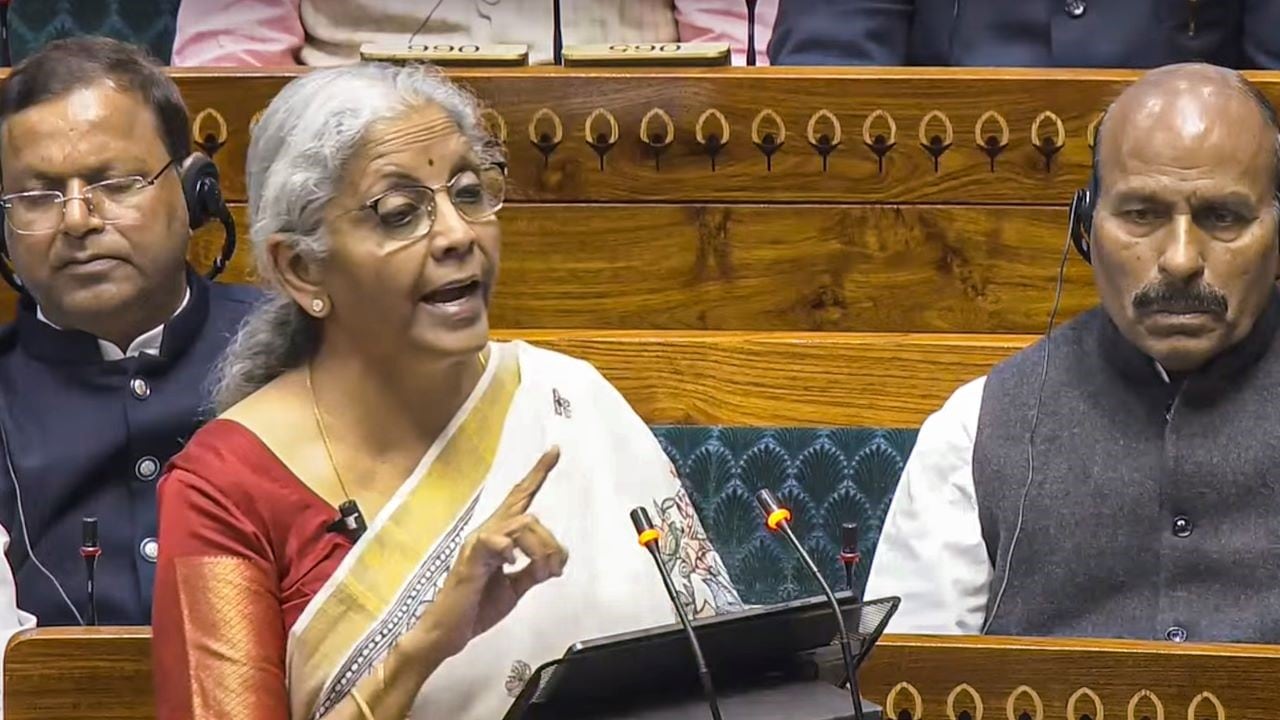Politics
Select Committee Raises 32 Key Issues in Income Tax Bill, 2025

The Select Committee of the Lok Sabha has presented a comprehensive report on the Income Tax Bill, 2025, identifying 32 critical issues that could impact clarity and fairness in the proposed legislation. The extensive report, spanning 4,574 pages, was submitted on February 13, 2025, by Committee Chairperson Baijayant Panda. Introduced by Finance Minister Nirmala Sitharaman, the Income Tax Bill aims to replace the Income Tax Act of 1961 entirely.
The Committee’s examination of the draft legislation has highlighted numerous areas requiring improvement. It has raised alarms about vague definitions and inconsistencies that could burden both taxpayers and administrators.
Need for Simplification and Clarity
A significant focus of the report is the necessity for clearer definitions throughout the bill. The Committee has advocated for revising the definition of “capital asset” in Clause 2(22) to be more aligned with recent amendments in the Finance Act, particularly regarding securities held by foreign investors. Additionally, the concept of “infrastructure capital company” was criticized for its complexity, with the Committee suggesting that the definition of “infrastructure facility” be directly included in the bill for better self-containment.
Other definitions, including those for “micro” and “small” enterprises, “parent company,” and “co-operative bank,” were also scrutinized. The Committee urged a more precise articulation to prevent potential misinterpretation.
Enhancing Fairness in Deductions
The report outlines several recommendations aimed at improving the fairness of income computations and deductions. For instance, it calls for explicit language in Clause 22 regarding the standard 30% deduction on income from house property, emphasizing that this should be applied after municipal taxes are deducted. The Committee also proposed that pre-construction interest deductions be available not only for self-occupied properties but also for those that are rented out.
Furthermore, clarity was sought in the realm of scientific research deductions, with the Committee advocating for a revision to specify when approvals are necessary. Similarly, the report highlighted the need to restore the term “adjusted gross total income” in clauses related to donations to avoid unintended tax benefits.
Support for Small Taxpayers and NPOs
The panel’s recommendations include provisions that could significantly benefit small taxpayers. It criticized the current requirement that mandates low-income individuals to file an income tax return solely to claim refunds for tax deducted at source (TDS). The Committee suggested removing this stipulation to prevent unnecessary legal repercussions for non-filing.
Special attention was given to non-profit organizations (NPOs), particularly those with dual religious and charitable objectives. The Committee recommended reintroducing the “religious-cum-charitable” category for exemptions on anonymous donations. It also emphasized using “income” instead of “receipts” for tax purposes, aligning with the principle of taxing actual income.
Addressing Legal Loopholes and Ensuring Continuity
The report calls for a careful redraft of certain clauses to maintain legislative intent. This includes revisions related to the computation of capital gains, the carry-forward of losses, and the eligibility for refunds when one person’s income is included in another’s. A notable concern was the proposed change of “shall” to “may” in penalty clauses, which could grant authorities undue discretion in non-compliance cases.
On the issue of tax avoidance, the Committee expressed support for the General Anti-Avoidance Rules (GAAR) but insisted on reinstating the phrase “in the circumstances of the case” to ensure assessments consider the specific context.
Modernization and Administrative Efficiency
In its recommendations, the Committee has also emphasized the need for modernizing administrative processes. This includes extending the compliance window for non-resident liaison offices from 60 days to eight months and removing fixed application fees in advance ruling cases to allow for greater flexibility.
Furthermore, the Committee approved Clause 536, which repeals the 1961 Act, with suggestions to ensure a clean consolidation of references, thereby preserving continuity through savings clauses.
Experts in the field have recognized the significance of these recommendations. Sandeep Jhunjhunwala, M&A Tax Partner at Nangia Andersen LLP, stated that the report aims to enhance legal clarity and taxpayer equity while facilitating a smooth legislative transition.
Rohinton Sidhwa, Partner at Deloitte India, noted that the amendments are corrective measures intended to fix drafting errors from the initial public comment draft. He pointed out that the provisions are now aligned with the original act.
Looking Ahead
The Select Committee’s 32 recommendations provide a roadmap for refining the Income Tax Bill, balancing the need for simplification with necessary safeguards. Whether the government will adopt these recommendations in full or in part remains uncertain, but their potential implications for individuals, businesses, and civil society are significant.
As the legislative process continues, the focus will be on ensuring that the final version of the Income Tax Bill, 2025, reflects a coherent and fair taxation framework for all stakeholders involved.
-

 World5 months ago
World5 months agoSBI Announces QIP Floor Price at ₹811.05 Per Share
-

 Lifestyle5 months ago
Lifestyle5 months agoCept Unveils ₹3.1 Crore Urban Mobility Plan for Sustainable Growth
-

 Science5 months ago
Science5 months agoNew Blood Group Discovered in South Indian Woman at Rotary Centre
-

 World5 months ago
World5 months agoTorrential Rains Cause Flash Flooding in New York and New Jersey
-

 Top Stories5 months ago
Top Stories5 months agoKonkani Cultural Organisation to Host Pearl Jubilee in Abu Dhabi
-

 Sports5 months ago
Sports5 months agoBroad Advocates for Bowling Change Ahead of Final Test Against India
-

 Science5 months ago
Science5 months agoNothing Headphone 1 Review: A Bold Contender in Audio Design
-

 Top Stories5 months ago
Top Stories5 months agoAir India Crash Investigation Highlights Boeing Fuel Switch Concerns
-

 Business5 months ago
Business5 months agoIndian Stock Market Rebounds: Sensex and Nifty Rise After Four-Day Decline
-

 Sports5 months ago
Sports5 months agoCristian Totti Retires at 19: Pressure of Fame Takes Toll
-

 Politics5 months ago
Politics5 months agoAbandoned Doberman Finds New Home After Journey to Prague
-

 Top Stories5 months ago
Top Stories5 months agoPatna Bank Manager Abhishek Varun Found Dead in Well









